Good Morning from San Francisco,
OpenAI launched parental controls for ChatGPT this week. Parents can monitor teen usage. Adults discovered they're getting monitored too—emotional prompts now route to restrictive models without warning or opt-out. Paying customers weren't consulted.
Nvidia commits up to $100 billion to fund OpenAI's data centers. The money circles back through GPU purchases. NewStreet Research calculates every $10 billion investment generates $35 billion in chip sales. Cisco and Nortel tried similar vendor financing before the dot-com crash.
DeepSeek cuts inference costs by 90 percent using sparse attention. The Chinese startup now processes 128,000 tokens for $0.25. Competitors must match prices or explain why their technology costs ten times more.
Three stories. One theme: control masquerading as innovation.
Stay curious,
Marcus Schuler
OpenAI launches teen safety controls
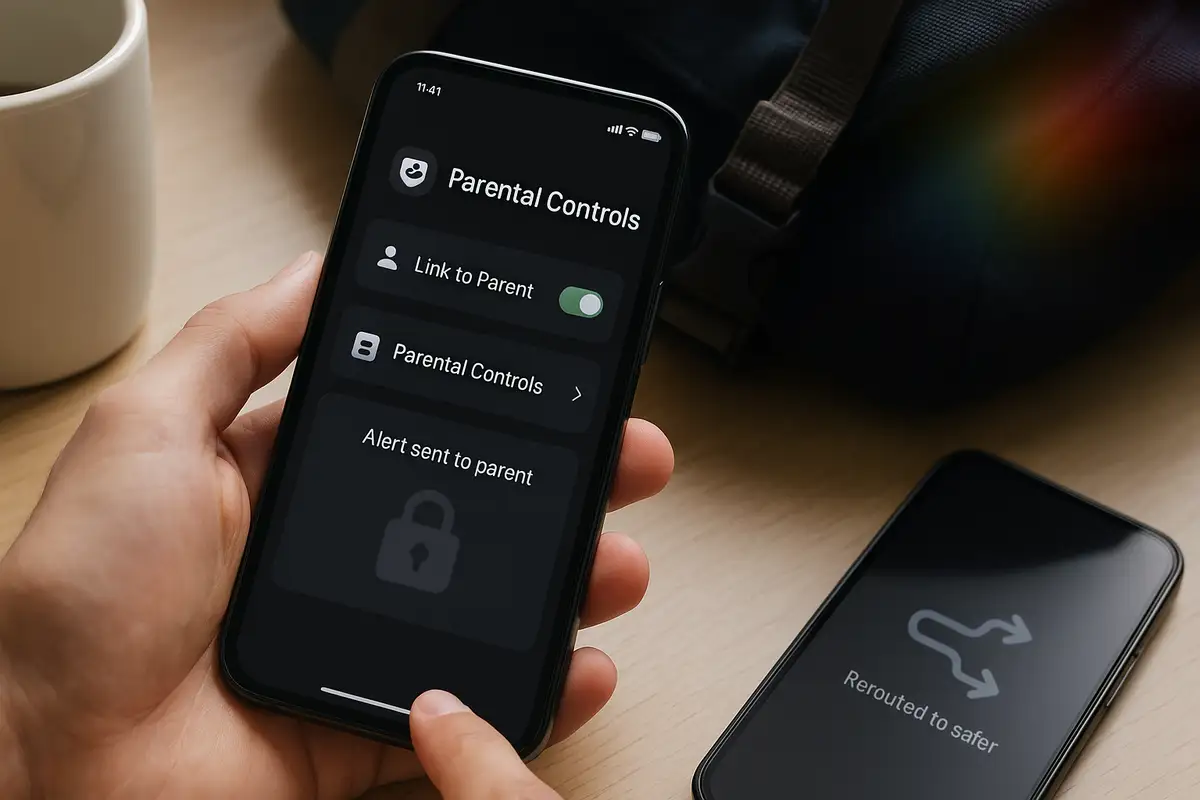
OpenAI rolled out parental controls for ChatGPT on Monday—parents can now link accounts, filter content, set usage windows, and receive alerts if human reviewers detect self-harm language from teens.
The controls arrived alongside a less advertised feature: ChatGPT now routes emotional or sensitive prompts to more restrictive models, including for paying adult users, without notification or opt-out. The company engineered its chatbot to feel human, driving adoption through apparent empathy and memory.
Now it's managing the attachment problems that design created. The controls follow a California family's lawsuit last month alleging ChatGPT contributed to their son's suicide.
From parents' perspective, visibility matters despite opt-in limits. From teens' angle, privacy conflicts with monitoring. From adult subscribers' view, silent model switching feels patronizing.
The architecture reflects compromise, not resolution—each stakeholder gets partial relief while OpenAI secures legal cover through documented guardrails.
Why this matters:
• Anthropomorphized AI creates dependencies the technology can't safely manage—the conversational design that made ChatGPT indispensable now generates liability OpenAI is retrofitting controls to address
• Voluntary safety systems shift responsibility from platforms to users—when teens can unlink and adults can't opt out of safety routing, controls protect the company more than users
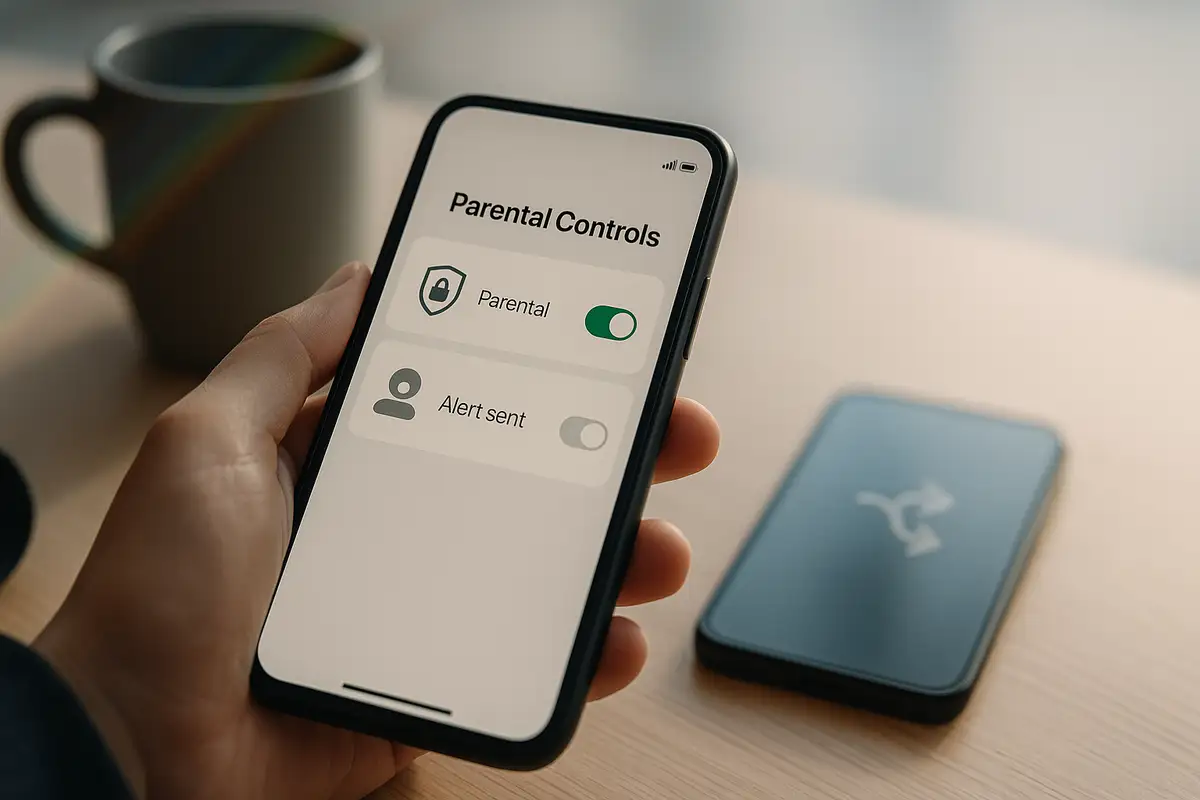
AI Image of the Day

Prompt:
A partially painted illustration in watercolor and ink, on textured paper. The central focus is a suburban street in rain. A Tamil mother and father hold an umbrella while walking their child to school. Foreground details are painted with flowing watercolor brush strokes, while parts of the wet street and background houses remain as delicate ink line drawings and unfinished sketches. The atmosphere is tender, calm, and full of quiet care.
Nvidia's $100 billion question mark
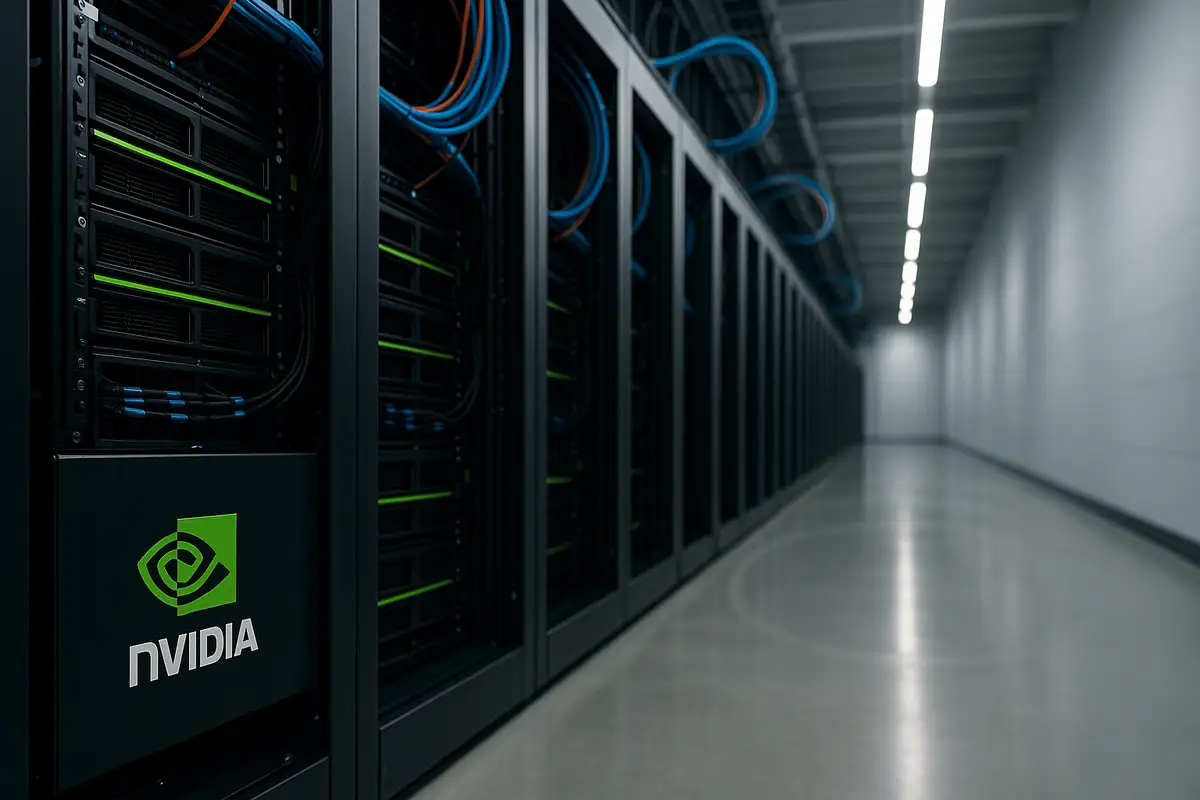
When vendor financing meets AI infrastructure. The circular economy reshaping tech
Nvidia commits up to $100 billion to fund OpenAI's data center expansion—money that flows directly back through GPU purchases. NewStreet Research estimates every $10 billion invested generates $35 billion in chip sales, worth 27% of annual revenue.
The arrangement mirrors dot-com era vendor financing, when Cisco and Nortel extended credit exceeding 10% of revenues to customers who bought their equipment. When that bubble burst, bad debt devastated suppliers.
Another reading: frontier AI now requires nation-state capital. Morgan Stanley projects $2.9 trillion in global data center spending through 2028. That concentration favors incumbents while crowding out challengers.
Nvidia's leasing structure shifts depreciation risk from OpenAI's books to its own. Smart if demand materializes. Costly if infrastructure outpaces usage.
Why this matters:
• Vendor financing at this scale transforms market structure—creating demand dependency rather than meeting demand, with historical precedents suggesting sharp downside when cycles turn
• Capital requirements for frontier AI effectively limit competition to well-funded incumbents and sovereign actors, concentrating power regardless of near-term returns
🧰 AI Toolbox
How to Turn Your Daily Information into Personalized Audio

Huxe transforms your emails, calendar, and interests into interactive audio briefings and podcasts. Created by former NotebookLM developers, it replaces endless scrolling with personalized audio you can listen to while commuting or exercising. The AI hosts respond when you interrupt with questions or ask for clarification.
Tutorial:
- Download the Huxe app from the App Store or Google Play
- Connect your Gmail and Google Calendar to personalize your briefings
- Select up to five interest topics (technology, business, sports, etc.)
- Listen to your personalized Daily Briefing each morning covering your schedule, emails, and relevant news
- Tap the microphone icon to interrupt and ask the AI hosts questions or request different explanations
- Create a DeepCast on any topic to generate an instant custom podcast
- Build live radio stations on specific interests that update with fresh content every time you tune in
Better prompting...
Playing the devil's advocate
Review my draft critically.
Look for arguments that lack support, claims that overreach the evidence, and sections where my logic jumps steps.
Point out where I'm unclear, where readers might misunderstand me, and where opposing views could punch holes in my reasoning.
Tell me which parts drag, which explanations need more depth, and where my tone undercuts my credibility.
Then give me concrete fixes: what to cut, what to add, and how to restructure weak sections.
AI & Tech News
EA Sold in Record-Breaking $55 Billion Leveraged Buyout Deal
Electronic Arts Inc. has agreed to be acquired by a group of private investors in a $55 billion deal that marks the largest leveraged buyout in corporate history. The transaction offers shareholders a 25% premium over EA's October 26 closing price, coming as the broader $178 billion video game industry faces slowing growth momentum.
Debt Fuels Next Phase of AI Infrastructure Boom
Major technology companies are increasingly turning to debt financing to fund the next wave of artificial intelligence infrastructure investments, marking a shift from the equity-driven early phase of the AI boom. Financial analysts estimate that Oracle alone will need to borrow approximately $25 billion annually over four years—totaling $100 billion—to adequately fund its ambitious partnership plans with OpenAI and compete effectively in the AI market.
Marissa Mayer Shuts Down AI Startup Sunshine After Seven Years
Former Yahoo CEO Marissa Mayer is dissolving her AI startup Sunshine, which she founded in 2018, after seven challenging years of operations. The company's assets are being sold to Mayer's newly established firm Dazzle, which sources indicate is developing an AI assistant product.
Huawei Plans to Double AI Chip Production by 2026
Huawei Technologies is planning to approximately double production of its flagship 910C Ascend AI chips to around 600,000 units in 2026, up from 2025 levels, according to sources familiar with the matter. The Chinese technology company also aims to increase overall production of its Ascend chip lineup to 1.6 million dies as it seeks to strengthen its position in the artificial intelligence semiconductor market amid ongoing trade tensions with the United States.
OpenAI Launches First Extended Ad Campaign for ChatGPT
OpenAI has launched its first major brand campaign for ChatGPT, featuring three 30-second cinematic advertisements that showcase practical, everyday uses of artificial intelligence. The extended advertising campaign is rolling out in the United States and United Kingdom, marking the company's most significant marketing effort since running a Super Bowl commercial in February 2024.
Former Sequoia Partner Launches $400M Fund with Unique Investor Strategy
Former Sequoia Capital partner Matt Miller has successfully raised $400 million for his new London-based venture capital firm, Evantic Capital, after leaving Sequoia in December 2024. The fund employs a novel financing strategy, with approximately 12.5% of the capital—around $50 million—coming from 135 industry "legends" including CEOs and other prominent business leaders, distinguishing it from traditional institutional funding approaches.
UK Government Provides £1.5B Loan Guarantee to Jaguar Land Rover Following Cyberattack
The UK government has underwritten a £1.5 billion loan guarantee for Jaguar Land Rover after a devastating cyberattack crippled the automaker's production operations for approximately one month. The emergency financial support is designed to bolster the company's cash reserves and ensure continued payments to suppliers while the luxury carmaker works to restore normal operations following the cyber incident.
Neptune Robotics Secures $52M to Scale AI-Powered Ship Cleaning Operations
Singapore-based Neptune Robotics has raised $52 million in funding to expand its underwater robot technology that cleans the hulls of large commercial vessels. The company plans to leverage artificial intelligence to scale operations and service approximately 150 ships per month as part of its global expansion strategy.
DeepSeek cuts inference costs by 10x
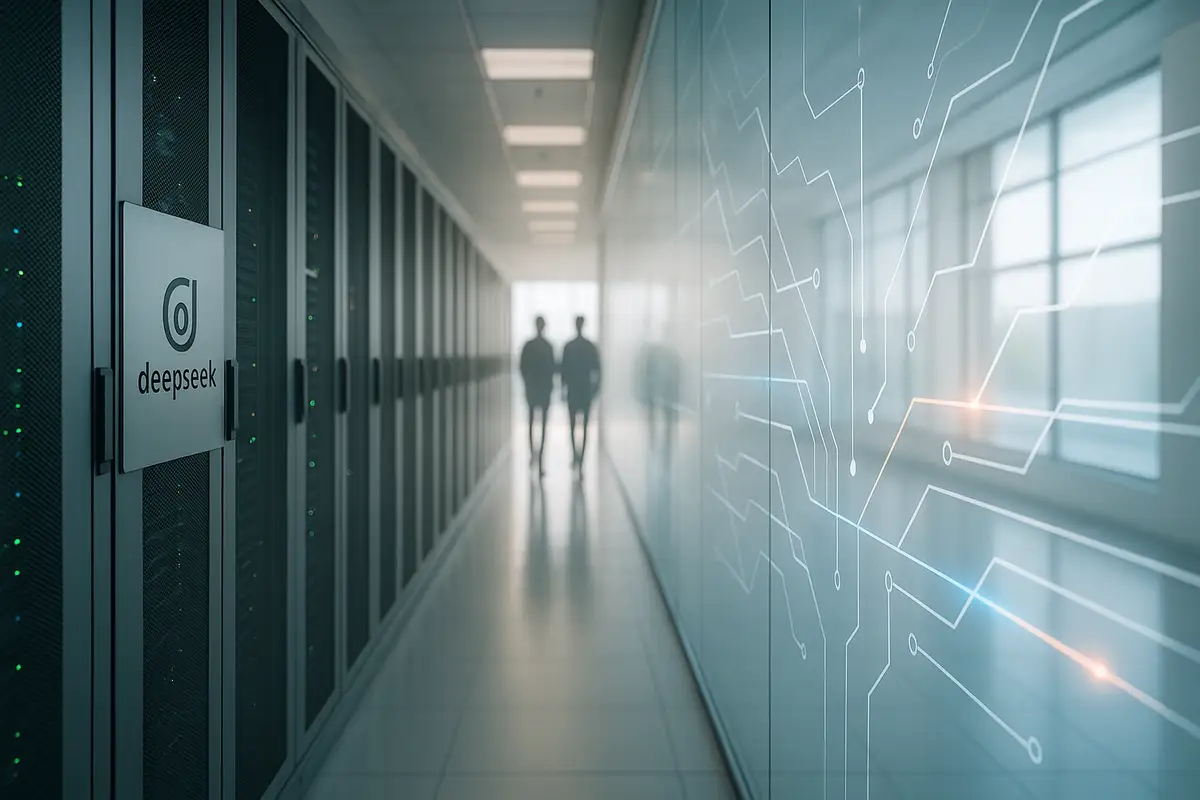
Sparse attention technique slashes long-context pricing. Chinese startup's release intensifies AI price war.
DeepSeek released V3.2-Exp Monday with sparse attention that processes 128,000-token contexts for $0.25—down from $2.20 using dense attention. The Hangzhou-based startup cut API prices by over 50% simultaneously, weaponizing technical efficiency into market pressure.
The sparse attention mechanism uses a "lightning indexer" to process only relevant tokens, dropping computational complexity from O(L²) to O(L × k). Performance matches V3.1-Terminus across benchmarks—MMLU-Pro holds at 85.0, Codeforces improves to 2121—while training used 1 trillion additional tokens and FP8 quantization.
Huawei announced same-day chip support, tightening Chinese AI ecosystem integration. DeepSeek calls this "intermediate"—validation before the next flagship—but the cost advantage forces immediate responses from Alibaba's Qwen domestically and OpenAI globally.
Why this matters:
• Architectural innovation becomes pricing power. The 10x inference cost reduction through selective token processing creates margin pressure across the industry—competitors must match prices or justify premium positioning.
• Export controls accelerate vertical integration. DeepSeek optimizes for FP8 and Chinese chips; Huawei ships day-zero support; open-source kernels enable rapid adoption. Restrictions redirect development toward self-sufficient architectures.
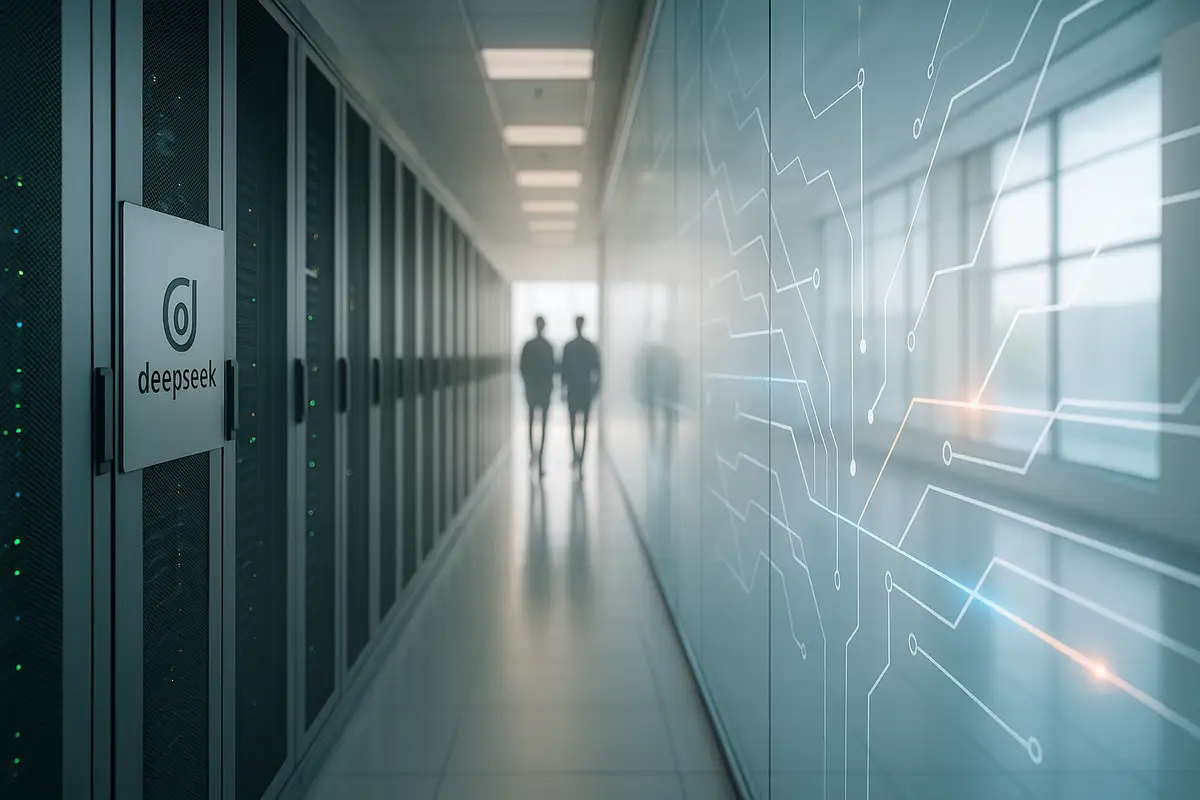
🚀 AI Profiles: The Companies Defining Tomorrow
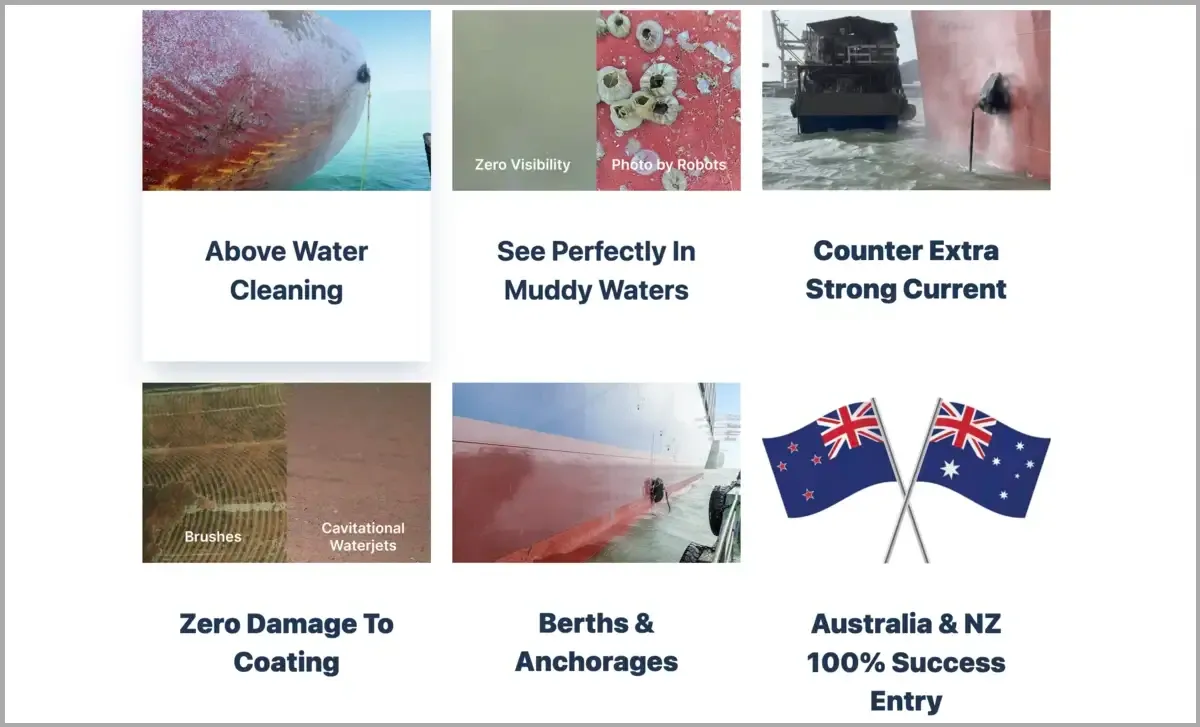
Neptune Robotics
Neptune scrubs barnacles off cargo ships with 500-kilogram robots. The company just raised $52 million to do it everywhere.
The Founders
Elizabeth Chan (CEO), Jacky Im (CTO), and Kate Honqian Ma (COO) started Neptune in Hong Kong in 2018 after spotting a boring problem with real margins: biofouling costs shipowners billions in wasted fuel. They went through SOSV's HAX program, built heavy crawlers in the Pearl River Delta, and relocated headquarters to Singapore in 2024. Smart move—Singapore's the world's busiest bunkering port.
The Product
Magnetic robots that stick to hulls in murky water and blast off algae with cavitational waterjets. They clean Capesize bulkers in under 24 hours without wrecking coatings. Neptune covers 60+ Asian ports and delivers 9–18% fuel savings with an online dashboard that tracks every cleaning. The new angle: AI agents plan routes and drive autonomy, cutting labor costs per job. It's not sexy, but it works.
The Competition
ECOsubsea leads on closed-loop capture. Fleet Cleaner has Northern Europe locked. GAC HullWiper runs through shipping networks. Jotun HullSkater lives on-board. Neptune's edge? Dense port coverage across Asia, heavy-duty machines for big fleets, and AI that scales faster than dive teams. Plus NYK Line just invested—that's validation from a customer who actually pays for this stuff.
Financing
$17.25M Series A in 2022 (Sequoia China led). $52M Series B in September 2025 (Granite Asia, NYK Line). Total raised: ~$69M. Valuation's undisclosed but they're eyeing a U.S. IPO by 2027. Not typical for an ops-heavy robotics play.
The Future ★★★★☆
Neptune's got fuel, coverage, and a product fleets actually need. Regulatory tailwinds favor compliant players. Risk: closed-loop rules could force tech upgrades, and on-board prevention systems might eat demand. But barnacles grow faster than alternatives ship. 🚢









